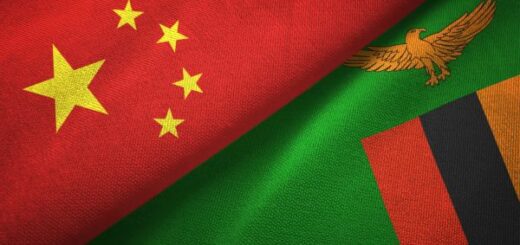Using Political Lenses to See Each Other
The worst thing to have happened in our country is that we no longer view each other objectively; instead, we see one another through political lenses.
This shift is not only disturbing but also deeply destructive, as it is being fueled by our leaders. Politicians have managed to dictate how we feel and behave toward one another, turning us into pawns in a game of political rivalry.
Nowadays, whatever you say or do is scrutinized through a political lens, and people label you based on their own biases. Criticize the current administration, and you’re instantly branded an opposition sympathizer or, more specifically, PF (Patriotic Front).
Conversely, if you criticize the opposition, especially PF, you’re labeled a UPND (United Party for National Development) supporter or a “Praise Singer.” It feels like neutrality no longer exists.
Even more concerning is how this labeling has seeped beyond social media into workplaces and academic circles. Many people, eager to contribute to national discourse, are now scared of being labeled and inadvertently finding themselves on the wrong side of the political spectrum.
It’s sad that individuals have to censor themselves, whether in school or at work, for fear of political retaliation. Politicians have succeeded in creating a “them versus us” environment.
What is particularly alarming is that even respected, level-headed individuals now ask, “Why do you seem to support those people?” This divisive mentality is disheartening.
A friend recently shared how their workplace, once dominated by people from certain regions, is now filled with individuals from previously underrepresented areas. This shift is not confined to lower levels; it reaches the highest levels of society, with institutions that were once led by people from certain regions now being headed by those from others.
This isn’t just a political issue; it’s a societal one, a double-edged sword that has cut through our social fabric for many years. We warned the previous administration that the divisive path they were treading would eventually backfire. They ignored these warnings, labeling those of us who raised concerns as envious or jealous. Now, we are all reaping the consequences.
Politicians will often claim that appointments are based on merit, but in reality, political correctness takes precedence. Merit is only considered once an individual’s political alignment is deemed acceptable. This vicious cycle will never end because we’ve never had a leader magnanimous enough to rise above petty politics and personal grudges.
What we need is a leader willing to start afresh, without holding onto past grievances. Imagine allowing top executives from the previous administration to remain in power after a change in administration — it simply wouldn’t happen. And when this administration leaves, it too will take its executives with it.
This is why our development as a nation remains stagnant. Each time we approach a point where experience and expertise could propel us forward, a new administration takes over, discards the old, and we start from scratch.
Zambia is like a university constantly losing its seniors just when they are ready to contribute at a higher level. As a result, we perpetually operate at a freshman level, never progressing beyond the basics.
Can we allow people to express their opinions objectively and honestly, without labeling them? Disagreeing with PF policies doesn’t make someone a UPND supporter, just as disagreeing with UPND policies doesn’t make someone a PF sympathizer.
Many Zambians simply want to be objective and open-minded, without being dragged into partisan politics.
As we approach the National Day of Prayer, Fasting, Repentance, and Reconciliation, let’s take time to pray for our leaders. Let’s pray that they will lead by example, showing that we are all one people, regardless of our backgrounds.
Let’s pray that they will lead the way in forgiveness and reconciliation, because if our leaders can forgive one another, the rest of the nation will follow.
Zambia deserves a fresh start — one free from grudges and retribution. We come with a message of peace and reconciliation, though we know some will misunderstand and twist our words for political gain. Nevertheless, like the prophets of old, we must deliver this message to the leaders of our nation.
We are passionate about Zambia’s success, and we believe that by looking at each other with brotherly love, rather than as competitors or enemies, we can build a brighter future for all.








